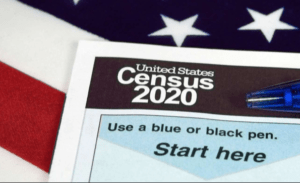By Colleen Tressler
FTC Consumer Education Specialist
August 21, 2020
 The Federal Trade Commission is partnering with the U.S. Census Bureau to help you guard against potential census scams. Knowing how the 2020 Census process works, what information you will — and won’t — be asked for, and some red flags will help you spot and report scams.
The Federal Trade Commission is partnering with the U.S. Census Bureau to help you guard against potential census scams. Knowing how the 2020 Census process works, what information you will — and won’t — be asked for, and some red flags will help you spot and report scams.
The Process
The 2020 Census began in March. By now, most households have responded. For those who haven’t, census takers will begin visiting homes to help complete the count. If you’re not home or can’t come to the door, a census taker will leave a notice with information about how to respond online or by phone.
Due to the COVID pandemic, census takers will be wearing masks and following local public health guidelines when they visit you. They will ask a few questions and submit your answers on a secure Census Bureau phone.
The Questions
The census questionnaire asks how many people were living in the home on April 1, 2020; their sex, age, race, ethnicity; their relationships to one another; phone number; and whether you own or rent the home. For the full list of questions on the 2020 Census, visit Questions Asked.
Signs of a Scam
Scammers may pose as census takers to get your personal information — and then use it to commit identity theft and other frauds. But there are ways you can identify official census takers.
Census takers must show a photo ID with the U.S. Department of Commerce seal and an expiration date. If you ask, the census taker will give you a supervisor’s contact information and/or the regional census enter phone number for verification.
The Census Bureau will never ask for your full Social Security number, bank account or credit card numbers, money or donations, or anything on behalf of a political party. The 2020 Census will not ask citizenship status.
The Census Bureau may call or email you as part of their follow-up and quality control efforts. They also might call if you’re not home when a census taker stops by, or when a personal visit is not convenient. Calls will come from one of the Census Bureau’s contact centers or from a field representative. Since we all know you can’t trust caller ID, visit How to identify a phone call from the Census Bureau for the phone numbers you can use to check out any calls you might get. Email messages from [email protected] will alert households in low-response areas that the 2020 Census is coming to a close, and ask that people respond online at 2020census.gov. If you get one of these messages, you can opt out of getting future messages.
Make sure you have the latest and most accurate information about the 2020 Census. Visit 2020 Census Rumors to fact-check and ask questions.
If you suspect fraud, call 800-923-8282 to speak with a local Census Bureau representative. You also can file a report with the FTC at FTC.gov/Complaint. Your reports may help law enforcement agencies launch investigations that could stop imposters and other fraudsters in their tracks.
Want information on the latest frauds and scams we’re seeing? Sign up for our consumer alerts.
